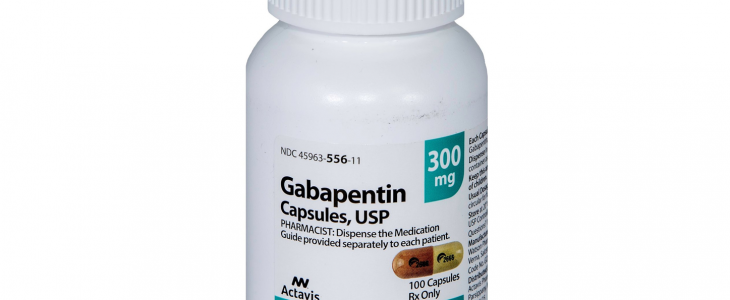How Long Does Gabapentin Detox Take?
September 23, 2022

Gabapentin is a drug classified as an anticonvulsant. In other words, it is mainly used to treat seizures. Other uses include the treatment of:
- Restless legs syndrome
- Anxiety
- Insomnia
- Alcohol withdrawal
- Cocaine withdrawal
- Nerve pain after shingles (postherpetic neuralgia)
Gabapentin is a prescription drug, which means you cannot buy it without your doctor’s orders. Despite this, cases of people using the drug without a prescription are rising in the United States. It becomes more problematic when gabapentin is combined with opioids, leading to more severe addiction and overdose.
If you have an addiction to this drug, detox is in order. Read on to find out how long it will take you to complete a full round of gabapentin detox.
What happens during gabapentin detox?
The aim of gabapentin detox is to rid your body of all traces of the drug. Along the way, you may experience withdrawal symptoms, but medical professionals will help you manage them. They may prescribe medications to ease the discomfort if needed.
Gabapentin tapering
Tapering off is a common technique in drug detox. Here, your dosage of gabapentin is lowered gradually until it reaches zero. This ensures that any withdrawal symptoms that develop stay mild and tolerable.
Medical professionals do not recommend quitting cold turkey, as this can produce unbearable withdrawal symptoms. Detox is meant to be as safe and manageable for you as possible. Quitting cold turkey shocks your brain with the sudden absence of gabapentin. The painful withdrawal symptoms are signs that your brain is struggling to adapt to having no more gabapentin.
Tapering, on the other hand, gives your brain ample time to adjust to the progressively lower doses of the drug. If you get any withdrawal symptoms, these will be easier to manage.
Withdrawal symptoms
Any time you quit using a drug, withdrawal symptoms are likely to develop. This is a normal part of detox, and it is a sign that your body is adapting to the lack of the drug.
In the case of gabapentin, you may experience the following withdrawal symptoms:
 Agitation
Agitation- Confusion
- Disorientation
- Gastrointestinal upset
- Sweating
- Tremors
- Elevated heart rate
- Insomnia
- High blood pressure
How bad these symptoms get depends on the level of your addiction. Mild addictions have fewer and less uncomfortable withdrawal symptoms, while more severe addictions can produce more painful withdrawal.
Any time your withdrawal symptoms become too much during detox, doctors will prescribe a few medications to manage them. This way, you will stay as comfortable as possible during the procedure.
Length of detox
Most medical professionals recommend a tapering schedule of more than one week. The actual number of days will depend on how well your body responds to the taper. If withdrawal symptoms become too much to bear, doctors may lengthen the taper. But if your withdrawal symptoms are tolerable, then you can stick to your original tapering schedule.
Thus, how long your taper lasts influences how long your detox process will be.
Why do I need gabapentin detox?
 When you have an addiction to gabapentin, you always have the urge to take the drug. You can no longer live a normal life without it. With that, you keep taking the drug regularly, and your brain has a regular supply of gabapentin.
When you have an addiction to gabapentin, you always have the urge to take the drug. You can no longer live a normal life without it. With that, you keep taking the drug regularly, and your brain has a regular supply of gabapentin.
At this point, your brain has become quite accustomed to the calming effect of the drug. If you try to stop taking it, you will find that you have a hard time relaxing. Your brain would not know how to calm itself down anymore. As a consequence, you will crave more gabapentin any time you stop taking it.
For this reason, quitting the drug on your own is often unsuccessful. The cravings combined with the withdrawal symptoms can feel so bad that you would rather take gabapentin again than endure the discomfort.
Detox in a medical setting, however, can help you manage withdrawal and cravings. You will always have medical attention throughout the entire process as well. Doctors will facilitate weaning you off the drug, and they will assist you in case of any complications that may arise.
Is there a way to make detox faster?
Detoxing needs to be a gradual process to make it more effective. Though it is possible to do it faster by quitting cold turkey, it is not without negative side effects. For one, the withdrawal you will experience will be a lot worse. You may not be able to endure it. In some cases, quitting cold turkey can even cause life-threatening conditions to come about.
In short, making detox faster is a dangerous proposition. The best route is the one taken slowly but surely.
What are the next steps of treatment?
After detox, you will move on to behavioral therapies. These will address the psychological and emotional aspects affected by your addiction. You will talk to trained therapists, who will:
- Help you understand the root cause of your addiction
- Educate you about the effects of gabapentin addiction on your brain and body
- Train you with new skills to cope with negative emotions in healthy ways
- Help you overcome your drug cravings
- Teach you how to actively avoid drug triggers and temptations to use
These therapies can be either one-on-one with the therapist or with a group of similar rehab patients.
There are different kinds of behavioral therapies, each with their own set of benefits. Some of them are:
 Cognitive behavioral therapy
Cognitive behavioral therapy- Dialectical behavior therapy
- Motivational enhancement therapy
- Contingency management
- Family therapy
- Couples therapy
This stage of treatment may also include recreational activities, which vary depending on the amenities in your rehab center. You could pick up a new sport, like badminton, basketball, table tennis, and many others, and use it as a way to divert your mind away from drugs. You may also do arts like sculpting, painting, sketching, and the like. In other rehab centers, animal-assisted therapy is used, where your preoccupation will be taking care of pets.
Behavioral therapies typically take months to complete, but the time you spend in rehab is worth it. At the end of therapy, you will be able to live a completely sober life once again.